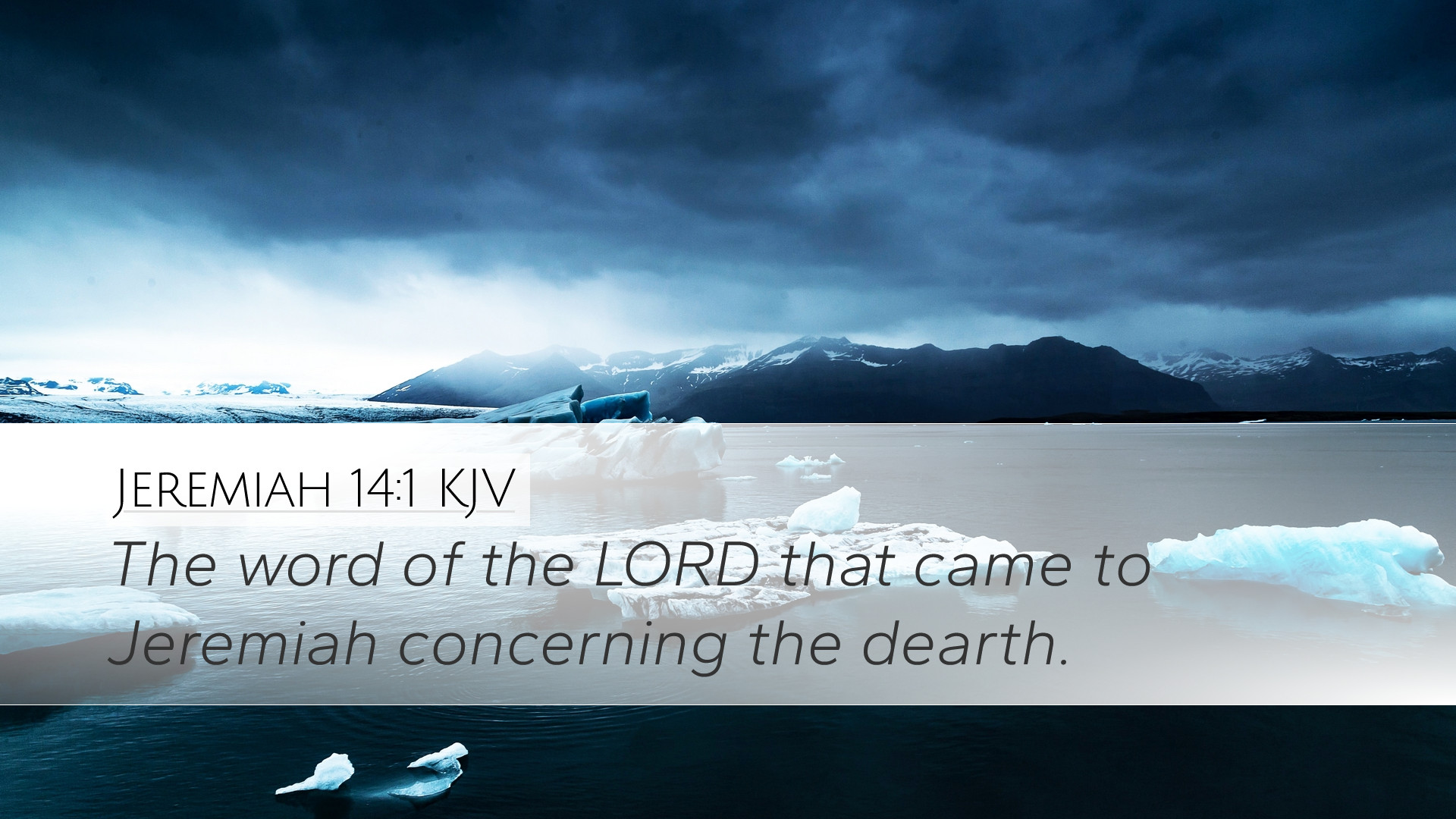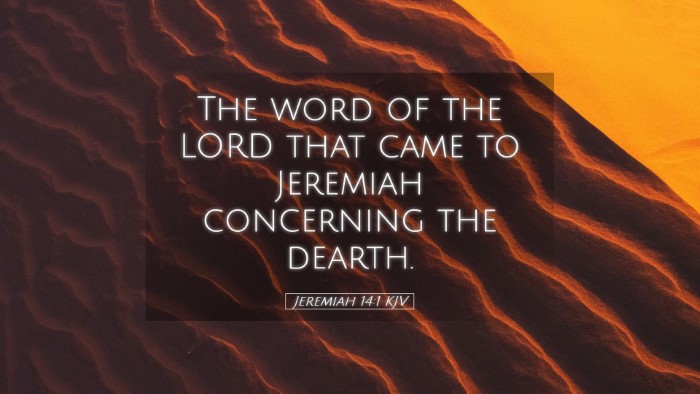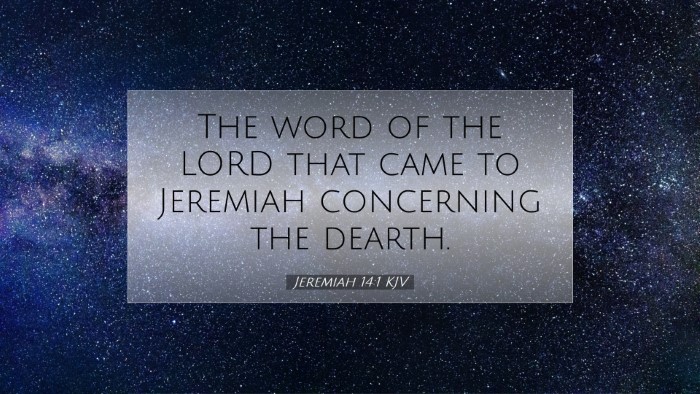Commentary on Jeremiah 14:1
Verse: "The word of the LORD that came to Jeremiah concerning the drought." (Jeremiah 14:1)
Contextual Overview
Jeremiah 14 opens a lamentation concerning the severe drought affecting the land of Judah. The prophet Jeremiah, known as the weeping prophet for his deep concern for the people of Judah, is called to convey God's message during this time of crisis. The drought symbolizes not just a physical scarcity but also the spiritual barrenness of the nation.
Theological Significance
This verse serves as a poignant introduction to the themes of divine judgment and human desperation. It emphasizes God's sovereign authority to speak into circumstances and highlights the significance of prophetic utterance in the face of national calamity.
God's Communication through the Prophet
According to Matthew Henry, this verse illustrates God's concern for His people. It emphasizes the importance of the prophet as a mediator between God and the nation, highlighting the vital role of divine revelation in understanding and responding to the crises faced by God's people.
Understanding Drought as Divine Judgment
Albert Barnes expounds on the idea that droughts in Scripture often reflect God's displeasure and serve as a means of chastening His people. The physical drought depicted in this passage serves as a metaphor for spiritual desolation caused by Israel's unfaithfulness. The drought leads the populace to a profound realization of their need for divine intervention.
The Role of the Prophet
In accordance with Adam Clarke, the prophetic call highlights the uniqueness of Jeremiah's ministry during a time of dire need. Jeremiah's function was not merely to point out the crisis but also to intercede for the people. Clarke points out that true prophetic ministry involves both proclamation and intercession, showing the compassion of God even amidst judgment.
The Human Condition in Crisis
The drought represents a collective crisis, evoking despair and hopelessness among the people of Judah. This reality resonates with both clergymen and scholars who strive to minister in times of societal distress. The shared experience of suffering can lead to a deeper understanding of communal sin and the necessity for repentance.
Repentance and Restoration
Matthew Henry emphasizes that even amid such dire circumstances, there lies a path to restoration through genuine repentance. The drought serves as a call to turn back to God, seeking forgiveness and restoration. In the face of physical desolation, the prophet points to spiritual renewal as the ultimate solution.
Spiritual Implications
Reflecting on Albert Barnes, it is essential to recognize that trials and tribulations can lead souls back to God. The drought in Judah acts as a catalyst for self-examination and a longing for spiritual rain – the refreshing of the Spirit. This aligns with the biblical theme that hardship can often prompt deeper faith and reliance on God.
Applications for Today’s Church
Today's church can draw significant insights from Jeremiah 14:1 as it navigates contemporary challenges. The relevance of this verse extends to modern issues such as spiritual droughts within congregations and cultural crises.
Leadership in Crisis
Pastors, informed by the insights of Adam Clarke, are called to be prophetic voices within their communities, guiding congregations toward understanding and addressing spiritual and social woes. They must invoke the heart of God in their intercessions and advocate for genuine repentance.
Encouragement in Adversity
The corporate lament seen in Jeremiah 14:1 encourages believers to confront their shared realities with honesty while seeking hope. As Matthew Henry suggests, sorrow can lead to a deeper encounter with God's grace, emphasizing the need for unity and collective action in prayer and repentance.
Conclusion
The opening verse of Jeremiah 14 sets the stage for a profound exploration of judgment, grace, and the necessity for repentance. As pastors, students, and theologians engage with this text, they uncover the layers of meaning that remain relevant in modern ministry contexts. Just as Jeremiah served as a voice for God's message amid crisis, today's leaders are called to bring clarity and hope to a world in need of divine intervention.


